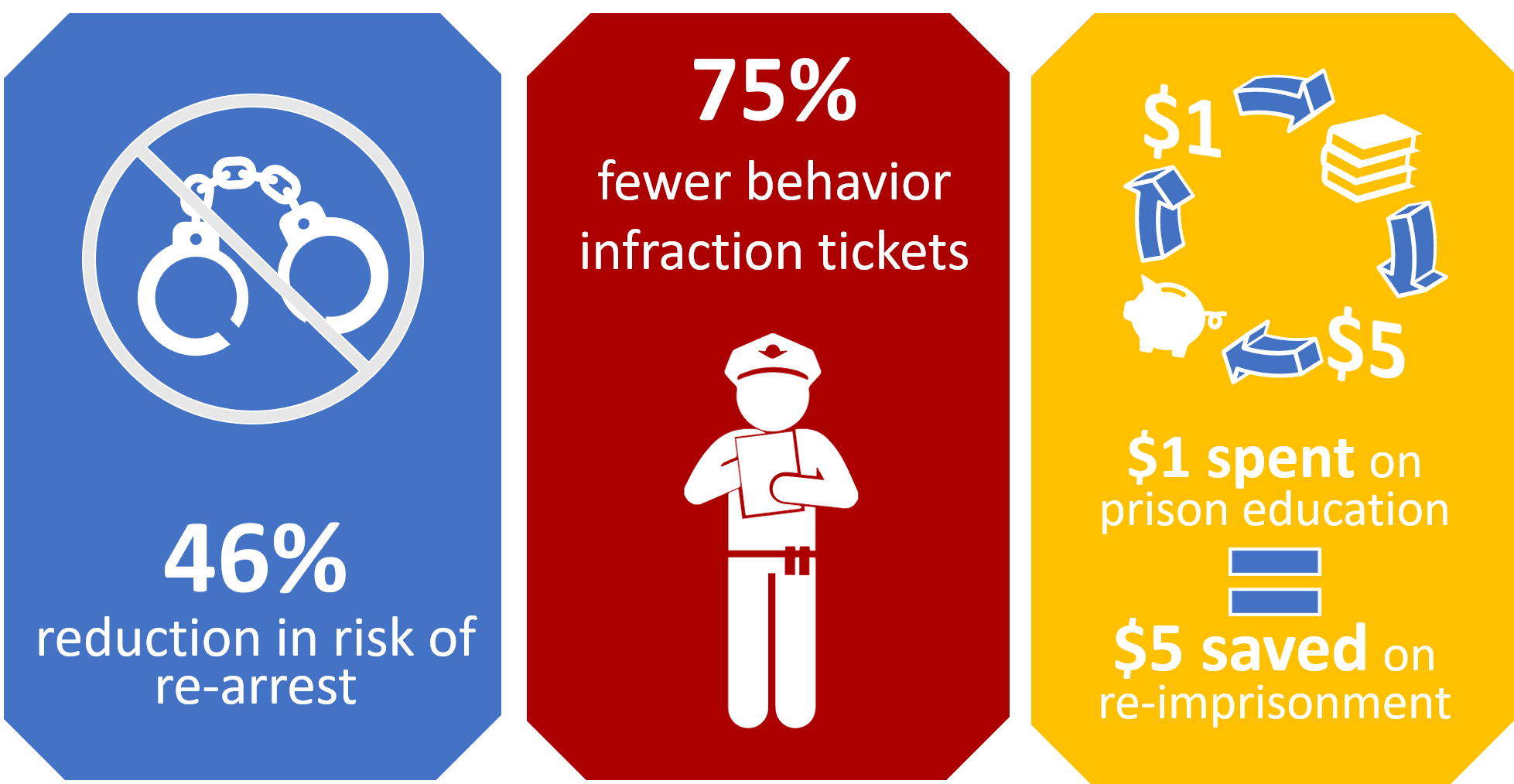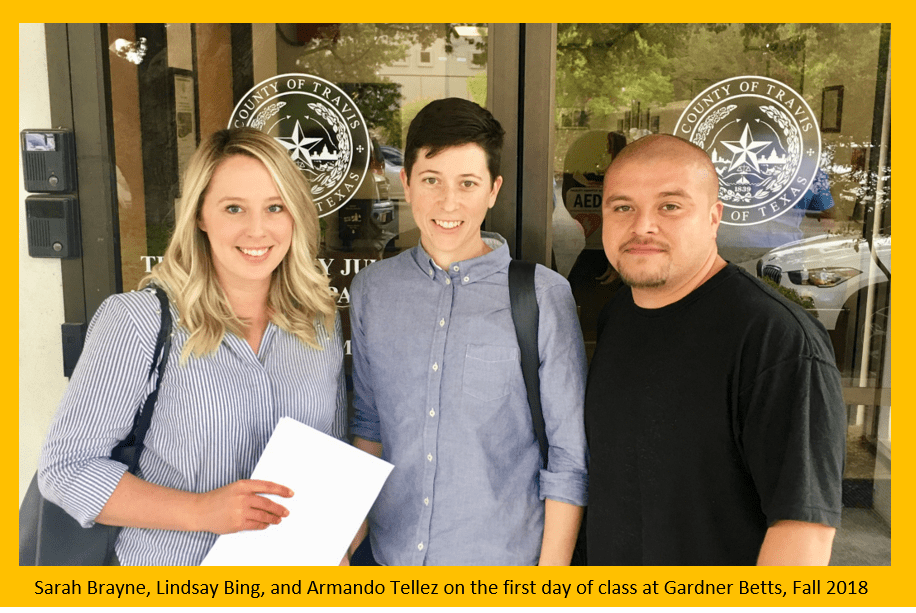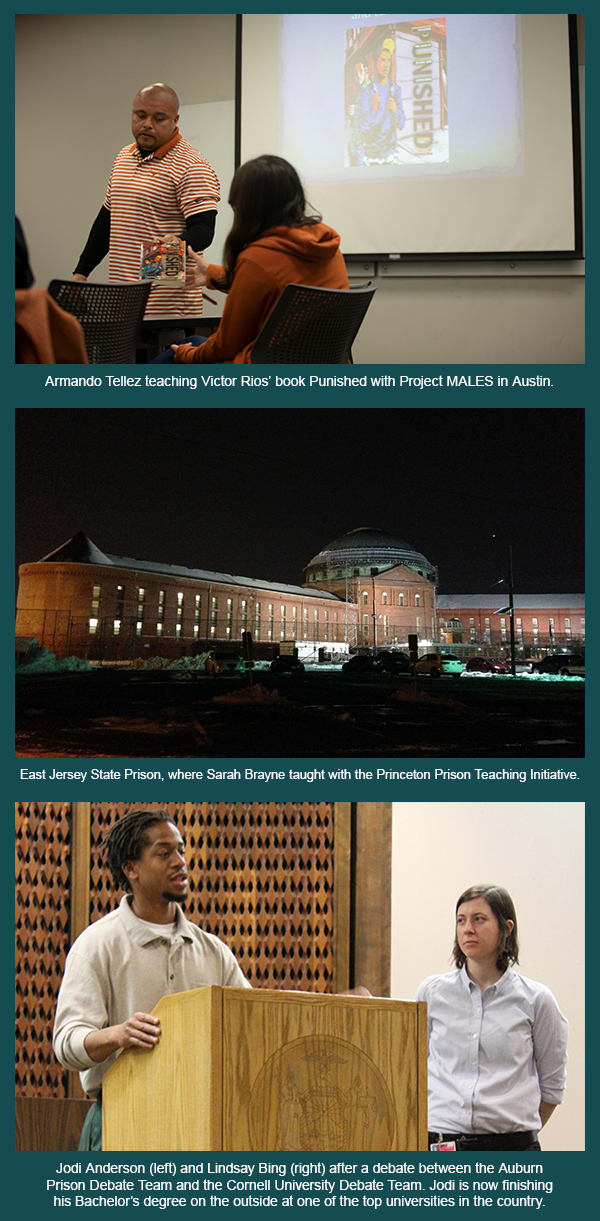This project is now in update mode. Check back regularly to see how things are progressing.
Texas Prison Education Initiative
Updated Goal!
Due to the overwhelming generosity of our donors, we surpassed our initial goal of $12,000 in just over one week! This is incredible! We are blown away by your support.
When we launched this fundraiser, we had no idea how many of you shared our vision of expanding higher education behind bars. Your extraordinary support has inspired us to set a second goal of raising a total of $20,000 to ensure that we can offer these college courses after the spring semester. The more you give, and the more you share our project, the more we can do.
The extra funds raised not only sustains the program while we establish long-term funding, but it also demonstrates that our community truly believes in our mission.
Please keep helping spread the word! We are deeply grateful for every donation - even just a few dollars
Why College in Prison?
Texas has one of the highest rates of incarceration in the world, with more than 150,000 Texans currently serving sentences in state prisons and jails. When inmates are released, they face the daunting task of seeking housing and employment with a felony criminal record. In part due to these unique challenges, nearly two-thirds of former Texas inmates will be re-arrested within 3 years of release. We want to help change that. Evidence shows that education programs in prison drastically reduce recidivism, making our community safer and changing the lives of formerly incarcerated folks and their families.

Research from college prison programs across the U.S. shows that prisoners who participate in college programs are as much as 46% less likely to be re-arrested after release that prisoners who don't take college classes. That reduction in recidivism leads to significant cost-savings. For every one dollar spent on educational programming in prisons, taxpayers will save as much as five dollars on re-imprisonment costs. The more education someone receives in prison, the less likely they are to end up back behind bars. Higher education in prison isn't just a smart investment in our future; it has an immediate impact on the safety and well-being of prisoners, staff, and corrections officers inside facilities. One study shows that prisoners who participate in college programs were 75% less likely to receive behavioral infraction tickets than prisoners who aren't in college programs. This means a safer environment for everyone, including corrections officers, staff, and volunteers.
Our Project
The Texas Prison Education Initiative was founded in 2017 to provide outstanding liberal arts education to Texans living behind bars in the Austin area. We began teaching our first class, Sociology 302: Introduction to the Study of Society, at Gardner Betts Juvenile Detention Center this fall. Through an agreement with University of Texas Extension Office, our students are earning transferable college credit that will help jump-start their degrees once they are released.
With your help, we can expand this program to begin teaching credit-bearing and college prep classes at Lockhart Correctional Facility, a minimum-security women's prison located just outside of Austin. There are approximately 1,000 women housed at Lockhart, and there are few educational opportunities beyond high school equivalency. We plan to enroll up to 60 women in Introduction to Sociology and a College Preparation class this January.
While we currently volunteer our time for free - offering a college course has costs we just can't cover on our own.

Your donations will cover course fees, text books, classroom materials, instructional resources, and transportation for our teachers. Women at Lockhart do not have access to computers or the internet, so each student will need a dictionary, thesaurus, and writer's manual - in addition to course readers, notebooks, paper, and pens. We are developing a mobile prison library to enhance the resources available for research and reference that will help fill the gap left by limited digital resources.
Our Team

Leadership
Our founding members come with a wealth of experience teaching incarcerated scholars. Dr. Sarah Brayne, Assistant Professor of Sociology, taught Sociology courses at Garden State Youth Correctional Facility and East Jersey State Prison in New Jersey through the Prison Teaching Initiative at Princeton University. Lindsay Bing, doctoral student in sociology, worked with the Cornell Prison Education Program for three years, teaching college writing and debate courses at Auburn, Five Points, and Finger Lakes Juvenile Correctional Facilities in upstate New York. Armando Tellez, master's student in Educational Leadership and Policy, works as an coordinator with Project MALES (Mentoring to Achieve Latino Educational Success) here in Austin. While a student at University of California, Los Angeles, he co-founded the UCLA chapter of Underground Scholars, a network of formerly incarcerated students and alumni, and facilitated courses in Los Angeles's juvenile jail.
Volunteers
Over the past three months, more than 50 faculty and graduate students from across the university have signed on to support TPEI as volunteer instructors, tutors, library curators, web designers, pedagogy and curriculum developers, social media coordinators and all-around-allies. We are ready to level up our programming and reach more students, but we need your help.

The Texas Prison Education Initiative aims to fulfill the mission of our university:
To Transform Lives for the Benefit of Society
Your support is vital to that mission, so please Donate Today. Thank you!
Sources: - Davis, L. M. et al. 2014. "How Effective Is Correctional Education, and Where Do We Go from Here?" RAND Corporation. - Gaes, G. 2008. “The Impact of Prison Education on Post-Release Outcomes.” New York: John Jay College of Criminal Justice.
- Erisman, W. & J. Bayer Contardo. 2005. “Learning to Reduce Recidivism: A 50-State Analysis of Postsecondary Correctional Education Policy,” Institute for Higher Education Policy.
- Chappell, A. 2004. Post-Secondary Correctional Education and Recidivism: A Meta-Analysis of Research Conducted 1990-1999. Journal of Correctional Education 55(2): 148-69.
$31
Materials Maverick
Your contribution of $31 can supply one student with college basics, including a dictionary, thesaurus, writing manual, and notebook.
$67
Book Buddy
Your donation of $67 can provide one student with course readers and textbooks for the semester.
$135
Course Collaborator
For $135, you can pay a student's course fees for a full semester.
$265
Library Luminary
A $265 contribution can help us grow our mobile college library, giving incarcerated students access to academic books and journals.
$405
Classroom Champion
Your donation of $405 can provide course fees for THREE incarcerated students next semester.
$1,050
Scholastic Superhero
Your donation of $1050 can provide an entire class with essential materials and instructor transportation for a whole semester.




